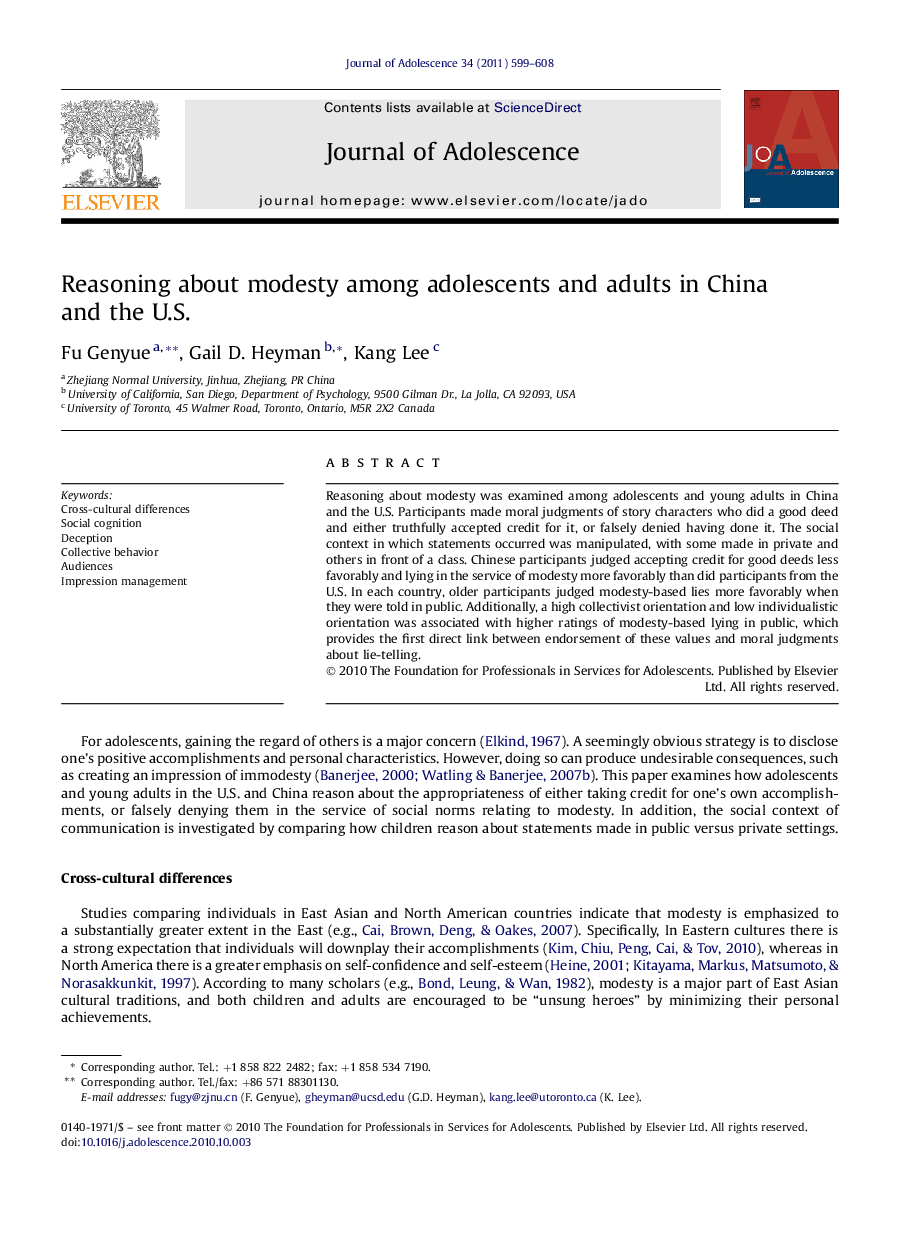| Article ID | Journal | Published Year | Pages | File Type |
|---|---|---|---|---|
| 881217 | Journal of Adolescence | 2011 | 10 Pages |
Reasoning about modesty was examined among adolescents and young adults in China and the U.S. Participants made moral judgments of story characters who did a good deed and either truthfully accepted credit for it, or falsely denied having done it. The social context in which statements occurred was manipulated, with some made in private and others in front of a class. Chinese participants judged accepting credit for good deeds less favorably and lying in the service of modesty more favorably than did participants from the U.S. In each country, older participants judged modesty-based lies more favorably when they were told in public. Additionally, a high collectivist orientation and low individualistic orientation was associated with higher ratings of modesty-based lying in public, which provides the first direct link between endorsement of these values and moral judgments about lie-telling.
